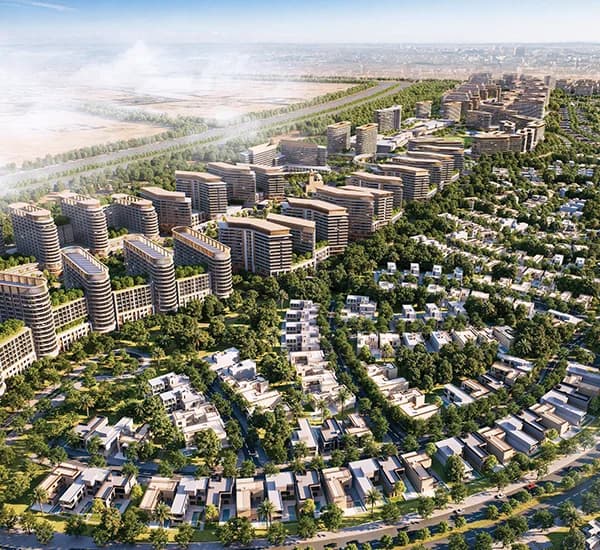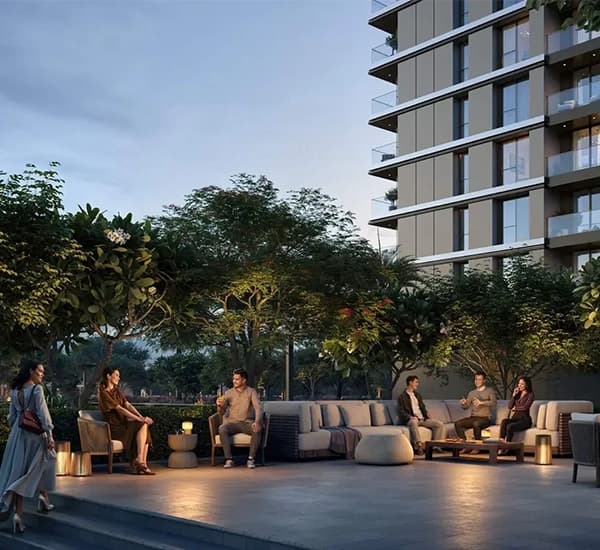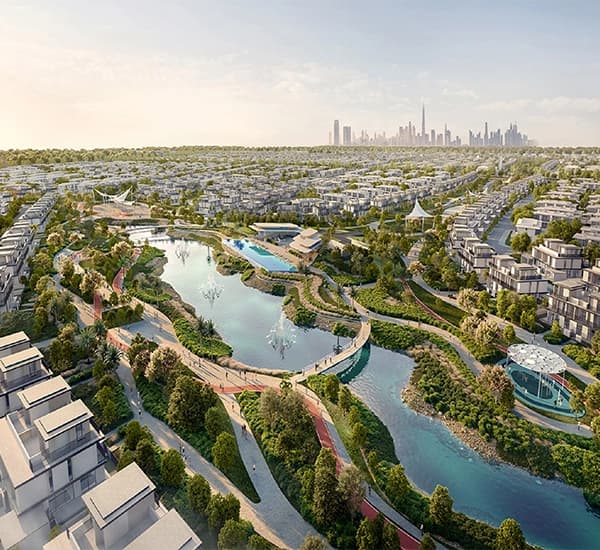Dubai's real estate market stands out not just for its potential returns but also for its strong regulatory framework. With RERA (Real Estate Regulatory Agency) at the helm and mandatory escrow account controls, buyer protection is a priority. Still, diligence remains your best defense.
Legal Checklist for Safe Transactions in Dubai:
- Title Deed (Ready) / Oqood Certificate (Off-plan) This proves legal ownership or pre-registration under the Dubai Land Department. Always cross-verify its authenticity.
- Developer’s RERA Registration Ensure your developer is officially registered and approved. This adds transparency, accountability, and peace of mind.
- Escrow Account Verification Confirm that all payments go into a RERA-approved escrow account, thereby shielding your funds until construction milestones are met.
- Due Diligence on Developer & Broker Review their track record, project history, and complaints (if any). Choose professionals with strong reputations and regulatory compliance.
Taxation & Ownership Costs in Dubai Real Estate Market:
Dubai is widely regarded as one of the most tax-efficient real estate markets in the world, making it a prime destination for both local and international investors. The absence of recurring taxes significantly enhances net returns on property holdings.
Investing in Dubai doesn’t just promise world-class infrastructure and luxury living; it also offers an exceptionally friendly tax environment that directly enhances investor ROI. Here's a breakdown of the key financial advantages.
Zero Percent Income Tax:
Dubai offers complete exemption from personal income tax. Whether you're earning rental income or profiting from property sales, your earnings are entirely yours. This zero-income-tax regime is a major draw for global investors seeking higher net returns.
No Annual Property Tax:
Unlike many global property markets, Dubai imposes no recurring property taxes on owned real estate. This means once you’ve purchased a property, there are no yearly tax burdens to account for, significantly reducing long-term ownership costs
5% VAT on Commercial Property:
While residential property transactions are either zero-rated or exempt from VAT, commercial properties are subject to a 5% Value Added Tax (VAT). This applies to purchases, leases, and services linked to commercial real estate—something buyers should factor into their cost projections.
Service Charges: AED 10–30 per sq ft:
Property owners contribute to the upkeep and maintenance of communal areas through service charges, which typically range from AED 10 to AED 30 per square foot per year. The exact rate depends on the property type, location, and amenities (e.g., pools, gyms, security). For luxury and high-rise developments, expect charges on the higher end of this range.
Ownership Costs vs. Global Cities:
Below is a comparative table summarizing the key cost components and taxes for property buyers in Dubai, Singapore, London, New York, and Mumbai. This overview highlights differences in registration fees, taxes, commissions, maintenance fees, and restrictions for foreign buyers.
| Cost Component |
Dubai |
Singapore |
London |
New York |
Mumbai |
| Property Registration Fee |
4% (DLD fee) |
3% (Stamp Duty) |
4% (Stamp Duty) |
1.825% (Recording Fee) |
5%–6% (stamp duty) |
| VAT/Sales Tax on Property |
0% (Residential) |
0% (Residential) |
0% (included in stamp duty) |
~1% (transfer tax in NYC) |
0% (residential, mostly) |
| Agency Commission |
2% |
1%–2% |
1%–2% |
5%–6% (standard in NYC) |
1%–2% |
| Annual Maintenance/Service Fees |
AED 15–30 / sqft |
SGD 3–5 / sqft |
GBP 3–5 / sqft |
USD 4–6 / sqft |
INR 3–6 / sqft |
| Capital Gains Tax (CGT) |
0% (no CGT in Dubai) |
0% (for individuals) |
18%–28% (depending on bracket) |
Up to 20% (Federal CGT) |
20% (on LTCG) |
| Rental Income Tax |
0% |
Up to 22% |
20% basic rate |
Up to 37% (Federal + State) |
~30% |
| Mortgage Interest Deductible? |
No |
Yes |
Yes |
Yes |
Yes |
| Foreign Ownership Restrictions |
None (Freehold zones) |
Yes (only condos, with ABSD) |
None |
None |
Yes (RBI rules apply) |
| Additional Foreign Buyer Taxes |
None |
ABSD: +20% for foreigners |
Up to 2% SDL surcharge |
None |
Non |
Observations from the data:
-
Dubai has the lowest ownership costs with 0% capital gains tax, no rental income tax, and no foreign ownership restrictions in freehold zones. This makes it one of the most tax-efficient global markets for property investors.
- Singapore imposes an Additional Buyer’s Stamp Duty (ABSD) of up to 20% for foreigners, significantly increasing acquisition costs.
- London and New York have high capital gains and income taxes, especially for long-term holders or landlords.
- Mumbai sees high stamp duties and CGT, especially with limited options for foreigners unless through specific RBI routes (NRI/OCI).
| City |
Annual Property Tax |
Income Tax |
Service Charges (Avg.) |
| Dubai |
0% |
0% |
AED 12–30/sq. ft. |
| London |
1.5–2% |
20–28% |
AED 30–50/sq. ft. |
| Mumbai |
0.6–1% |
20–30% |
AED 15–35/sq. ft. |
| New York |
1.2–2% |
25–35% |
AED 35–60/sq. ft. |
Observation from the graph:
- Dubai stands out with zero annual property tax and zero income tax on property ownership, making it the most tax-efficient city among those compared. Its average service charges are also the lowest at AED 21/sq. ft.
- London, Mumbai, and New York all impose both annual property taxes and income taxes on property ownership:
- London: Property tax at 1.8%, income tax at 24%, and high service charges at AED 40/sq. ft.
- Mumbai: Property tax at 0.8%, income tax at 25%, and service charges at AED 25/sq. ft.
- New York: Property tax at 1.6%, the highest income tax at 30%, and the highest service charges at AED 47.5/sq ft
- Service charges are significantly lower in Dubai compared to the other cities, with New York having the highest.
- The tax burden (property and income tax combined) is nonexistent in Dubai, while it is substantial in the other cities, especially New York and London.
- Overall cost of ownership (considering taxes and service charges) is lowest in Dubai and highest in New York.
Note:The above data highlights Dubai's competitive advantage as a property investment destination due to its minimal ownership costs and absence of recurring taxes.


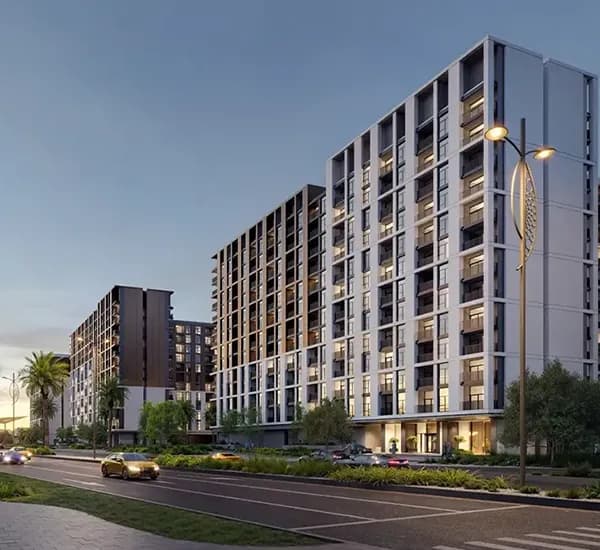

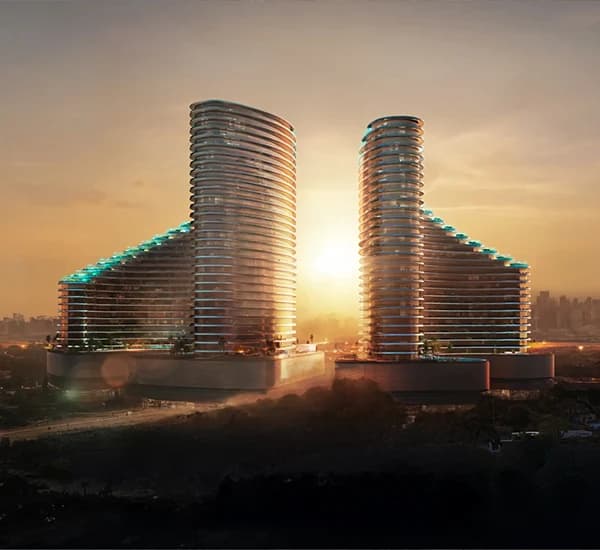

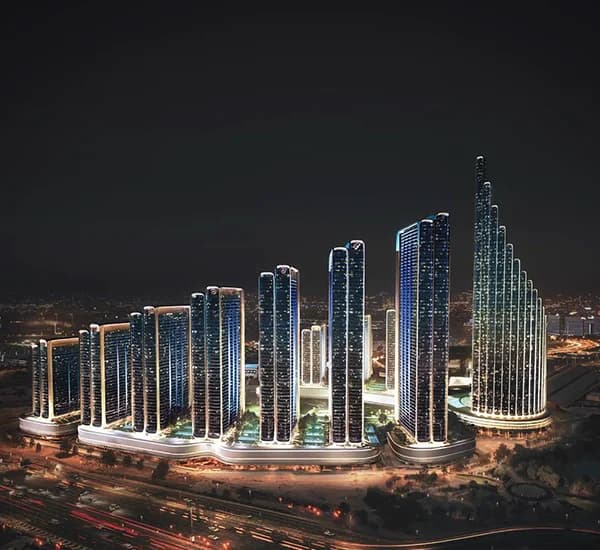
.svg)
